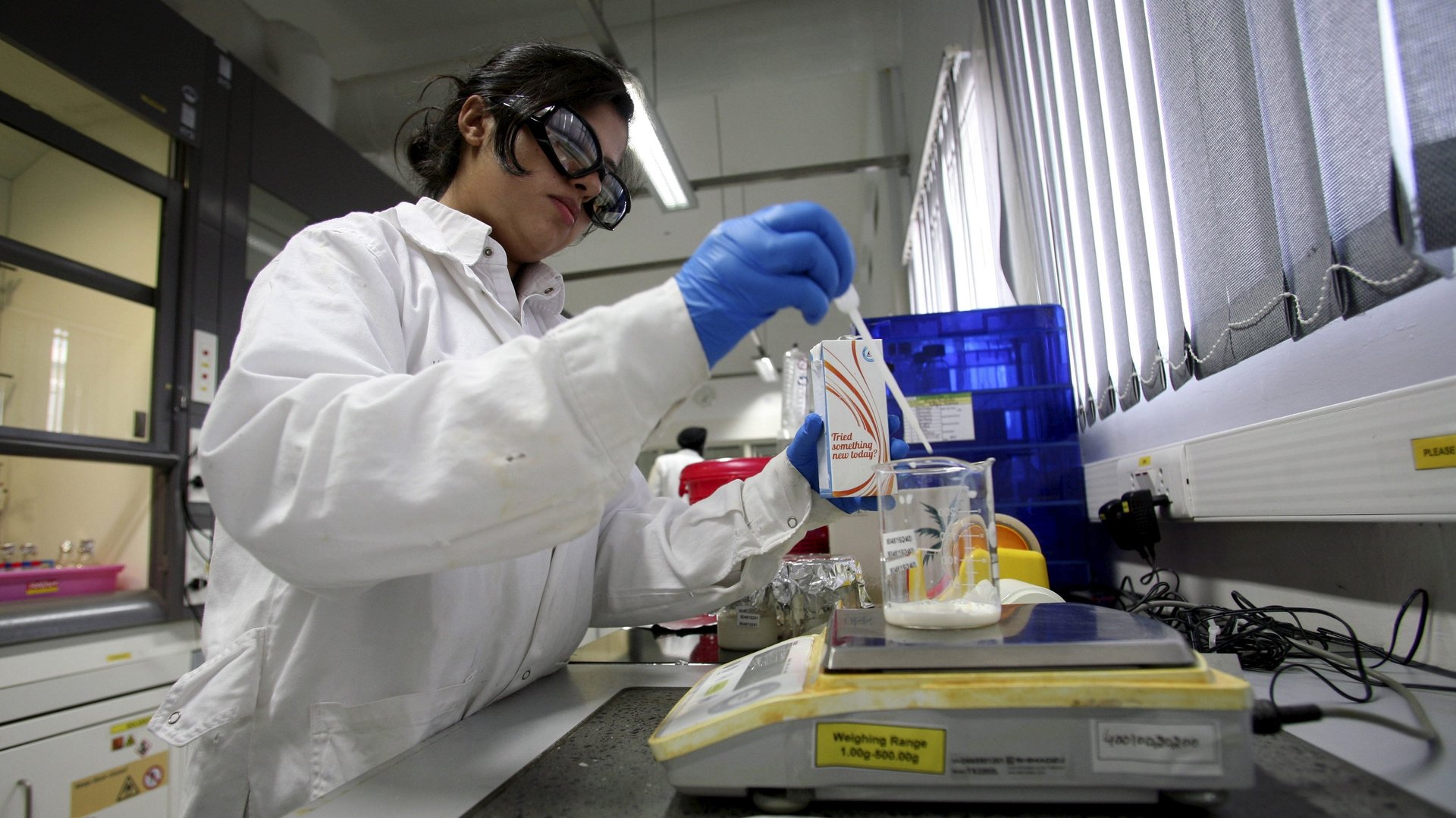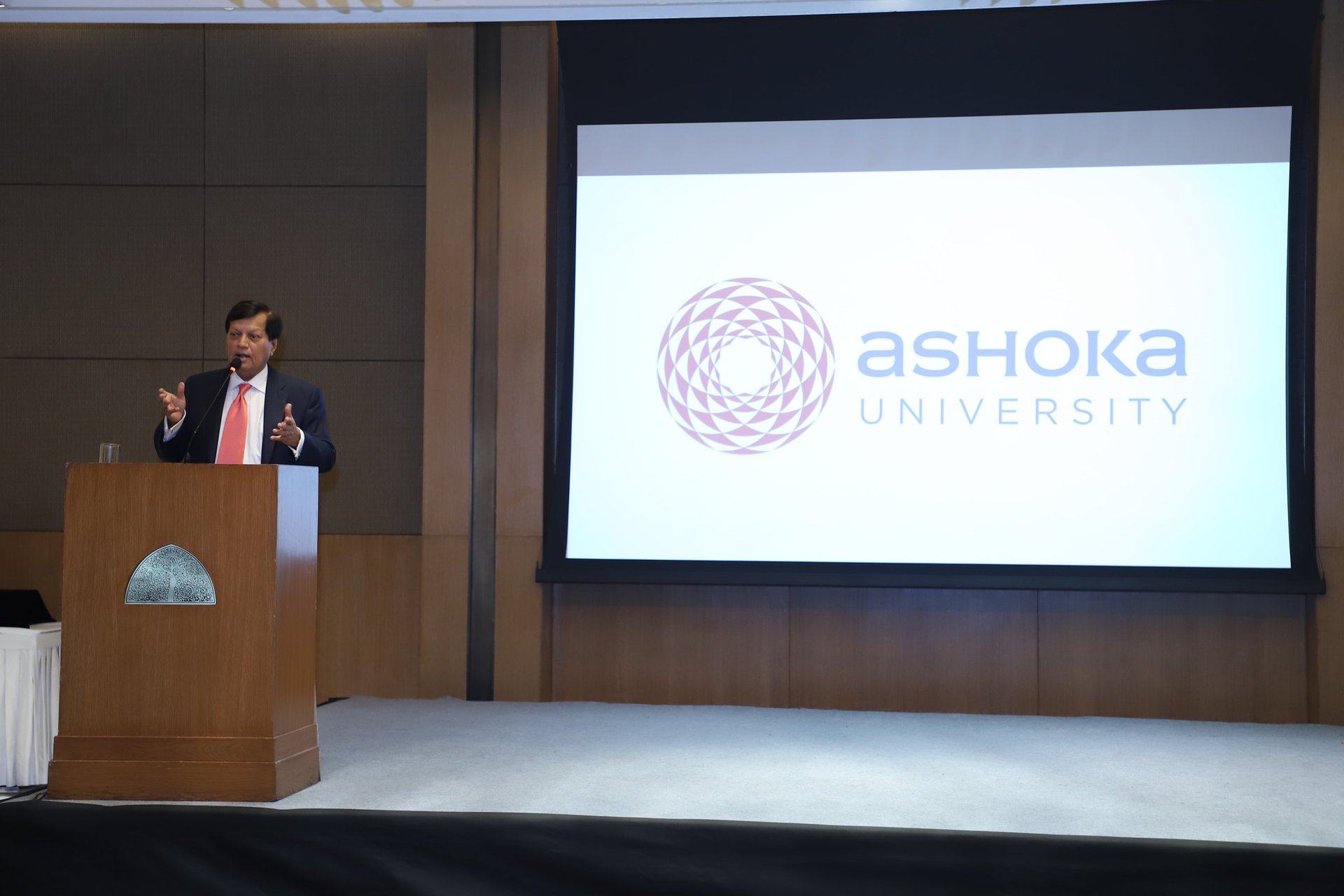“Unlike with IT, India riding the new biosciences wave shouldn’t be an accident”
It was by chance that India rode the IT wave, but replicating this success with the next big thing—the biosciences revolution—will need the country to be much more proactive.


It was by chance that India rode the IT wave, but replicating this success with the next big thing—the biosciences revolution—will need the country to be much more proactive.
“If the 20th century was the era of computing, the 21st century may be the era of biosciences,” Ashok Trivedi, co-founder of IGATE (sold to Capgemini in 2016) and managing partner of venture capital fund SWAT Capital Trivedi, said. “India needs to be ready with a talent pool (of bioscientists).”
The founder & trustee of the private Ashoka University has already committed over Rs100 crore ($13.97 million) to set up the Trivedi School of Biosciences at varsity’s campus in Sonepat, Haryana.
The new school will be headed by eminent names in the field of biology and technology. The advisory board will be led by Nobel laureate and president of the Royal Society, Venkatraman “Venki” Ramakrishnan. Nobel laureate Jack Szostak from Harvard University, James Collins of Massachusetts Institute of Technology, Ronald Vale of Howard Hughes Medical Institute, and Satyajit Mayor of National Centre for Biological Sciences, Bengaluru, will help establish the research and teaching agenda.
Expected to be fully functional by December 2021, the new school aims to induct 30 biosciences faculty and 100 doctoral scholars by 2025. However, housed inside an elite university with expensive tuition fees, the question of diversity is likely to remain.
In an interview with Quartz, Trivedi spoke about the enormous potential of synthetic biology and what India must do to participate in this disruptive field. Edited excerpts:
What was the thought behind setting up a biosciences school at Ashoka?
For the past four years or so, I have been thinking about the possibilities of biosciences. Bio-scientists mostly took a backseat in the last 200 years. Today, physics has reached a level of creative maturity, while bio-scientists are bubbling with youthful excitement. This is especially after the human genome was cracked in the mid-90s.
The first human genome cost $3 billion to sequence. In 2001, the cost fell to $100 million. Today, Illumina, a San Diego based

company, can do a human genome sequencing for $600. Its CEO predicts they’ll be able to do it for about $200 in the near future. If the 20th century was the era of computing, the 21st century may be the era of biosciences.
I also looked at its implications in various areas, like healthcare, environment, water, and energy. Just look at the possibilities in healthcare alone. While the cost of genetic sequencing has gone down, the speed of the sequencing technology has grown exponentially. This creates the ability to identify tiny mutations in a person’s genes that are tied to many diseases. In the US, they are tackling cystic fibrosis and sickle cell disease, which are prevalent in many parts of India. Now, in addition to detecting faulty genes, we are seeing technologies that can edit the genes, as if you’re debugging your software port. This could be the biggest revolution in healthcare since penicillin.
What will be the focus of this school?
Advances in biological sciences, biological engineering, and advanced computing are coming together to form a capability called synthetic biology. At our school of biological sciences at Ashoka, we will be focusing on synthetic biology, which is shaping up to be the next dominant technology. It is a relatively young field, but in a short time, it has made astonishing progress. It has applications in infectious diseases, agriculture, food and water, the environment and producing energy from biomass.
What is the potential biosciences market in India from the perspective of job seekers?
I have spent my career in the trenches of the IT industry. I saw it create millions of high-paying jobs. I saw it raise India’s image in the world. The opportunity now is to take this job creation, and India’s image, to new heights through biological sciences. I’m convinced that in the future, there will be biological sciences companies that will exceed the scale of Google, Apple, and Microsoft. And this industry will create enormous high-paying jobs like the IT industry did. And, to me, India needs to be ready with that talent pool because only then we can participate (in this growth).
India has to build many biosciences schools to build that pool. So when this field really takes off, India can participate effectively in a biotech revolution. Unlike the IT revolution, where India’s participation was accidental, I believe proactively focusing on this education will give Indians an edge.
How will this further the interdisciplinary approach at the core of Ashoka?
Ashoka has been a liberal arts university, and that is a wonderful platform to start this new school. Recently, about a couple of months back, I was in Silicon Valley. During a dinner in Palo Alto recently with top venture capitalists, they told me they are hiring lots of liberal art graduates. To get a deal done with a tech company, it requires about 15 meetings, they said. Of these, techies are only needed in the first four or five meetings. After that, executives with liberal arts education take over and get that deal done. As Apple founder Steve Jobs put it, technology, married with liberal arts, is what yields results that will make your heart sing.
Everything is becoming interdisciplinary. And if all these people are housed in the same building where they study, they will share ideas and insights.
How would you ensure greater diversity at the university and within the bioscience school?
Up to 60% of students at Ashoka today get at least some sort of partial scholarship, if not full scholarship. We are absolutely need-blind. We get a lot of students from small towns in India. The rigor and transparency of our admission policy are wonderful. While we are going through the admission process, we don’t even find out about the students’ family income. Only once the applicant clears the admission criteria do we get into offering financial assistance.